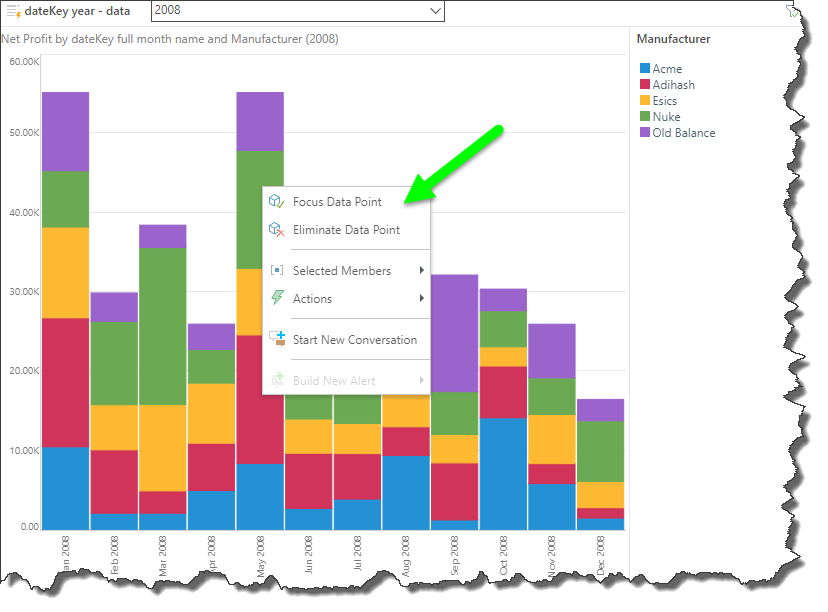From Discover Lite, you have a variety of ways in which to dynamically interact with your data on-the-fly. You can easily explore your data set using dynamic interactions like dicing, drill, quick sort and filter, and more. These tools are accessible via the right click context menu and are designed to be simply and easy to use. With a couple of clicks, you can change the way the data set is presented in your visualization.
To access interactive query functions:
- Right click on the cells, columns, headers, legends or segments of the visual
- Right click on the chips in the drop zones

To learn more about dynamic interactions, click here or follow the links below.
Functions
- Drill Down, Drill Up and Drill to Level: navigate between different levels of a hierarchy.
- Expand and Collapse: show or hide multiple levels of the hierarchy in a grid visualization.
- Dice: 'drill across' from a chosen element into another hierarchy.
- Member and Data Point Selection: select elements and data points for deeper analysis directly from visualizations.
- Quick Sort: choose the order in which data and items are presented in a visualization
- Quick Filter: numerically filter data and items in queries
- Pivot: rotate selections between drop zones in your query design, which will change the layout of the visualization accordingly.
- Totals: add totals to grids to add context and information to the report.
Extended Interactive Functions
Aside from the interactive functions listed above, the context menus also expose extended capabilities. These are functions that extend beyond typical data consumption and analysis. These functions include Calculation tools, Actions, Alerts and Conversations.
- Calculations: build typical mathematical functions on content without writing any code. The calculations are automatically included in the query..
- Actions: jump to another report or dashboard based on a contextual click.
- Alerts: attach a triggered event to notify you if a data point has changed (up, down or the same).
- Conversations: add or reply to discussion threads that are attached to data.